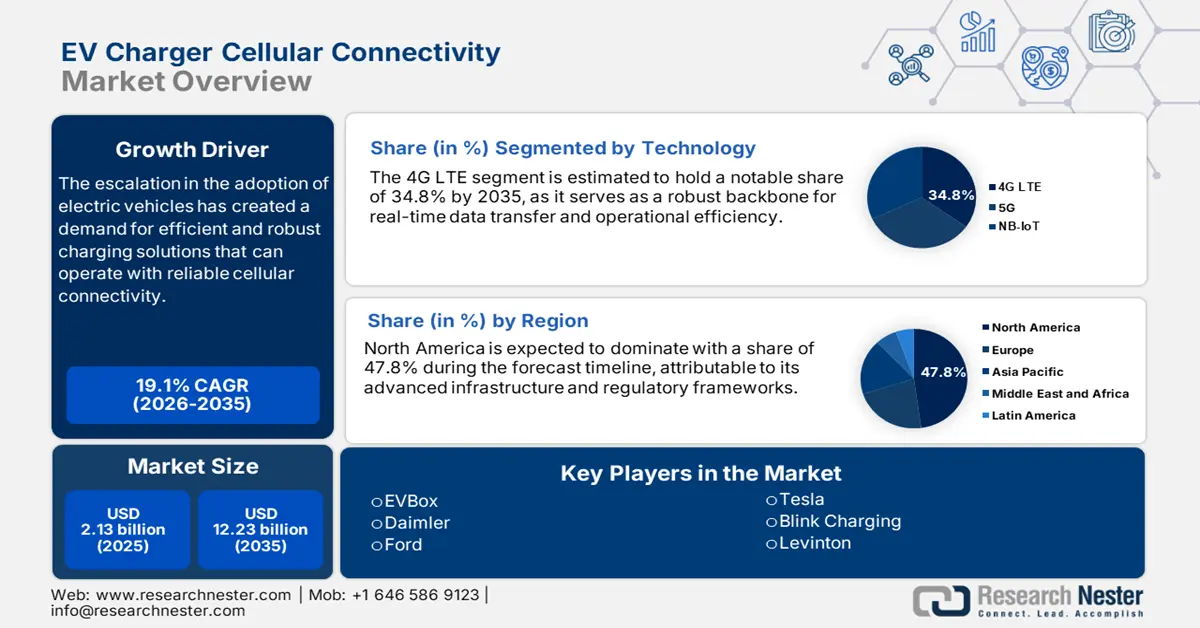EV Charger Cellular Connectivity Market Outlook:
EV Charger Cellular Connectivity Market size was over USD 2.13 billion in 2025 and is anticipated to cross USD 12.23 billion by 2035, witnessing more than 19.1% CAGR during the forecast period i.e., between 2026-2035. In the year 2026, the industry size of EV charger cellular connectivity is estimated at USD 2.5 billion.
This rising traction in the market has increased due to the growth in electric vehicles and the expanding need for smart, networked charging solutions. For instance, according to the reports of the International Energy Agency, the sale of EVs in 2023 has increased up to 3.5 million compared to 2022, with a 35% surge with 14 million registered electric cars.
Furthermore, cellular connectivity plays a critical role in enabling real-time communication between the EV chargers and the central networks, thus making way for remote monitoring, diagnostics, and management of the charging infrastructure. This further boost market growth by incorporating support features such as dynamic pricing, load balancing, and over-the-air software updates. For instance, in September 2023, FLO tested and developed plug-and-charge and wireless charging technologies in collaboration with industry leaders Hubject and WiTricity, advancing the future of EV charging. In addition, with ambitious electrification and sustainability targets set by most major economies, the demand for robust, scalable, and secure charging networks will rise, especially considering the growing presence of the EV market worldwide.
Coupled with 5G technology and advancements in IoT, cellular connectivity further accelerates the ability to support the increasing complexity and scale of the EV charging ecosystem, from reliable, high-speed data transmission to critical real-time information exchange. These factors combine to position the cellular connectivity market for EV chargers as a central, driving factor in the electric mobility revolution more broadly. Another market-boosting factor is the need for environmental protection. In May 2023, the EU passed a landmark law requiring all new cars sold to have zero CO2 emissions by 2035. European countries are racing to prepare the infrastructure needed for fossil fuel-free mobility. Sweden is all set to build the world's first e-motorway as the stepping stone to an expansion of another further 3,000 km of electric roads by 2035.


